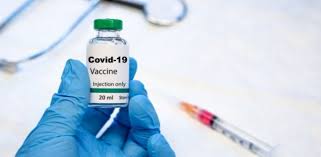NEW DELHI: With nine vaccines in different stages of development in India and three under consideration of the national drug regulator for emergency approval, the Centre on Tuesday said some of the vaccines under review would get licence in the next few weeks and the vaccination drive would start thereafter “at the earliest.”
Pfizer India, Serum Institute and Bharat Biotech vaccines are with the Central Drug Standards Control Organisation which will hold extensive safety review of available trial data before granting licences for use in India.
“We hope a decision on the three vaccines would be taken expeditiously without compromising scientific rigour. Early licensure is possible in respect of all three vaccines or any one of them. We can’t say when exactly the approval will come but early decision is expected,” VK Paul, chairman of the National Expert Group on COVID Vaccine Administration, said today.
The government said everyone who needs a vaccine will get a vaccine, but three categories will be inoculated first.
These include one crore health workers, two crore frontline workers (personnel of police, armed forces, home guard, disaster management volunteers and municipal workers) and 27 crore people who are plus-50 and those under-50 with comorbid conditions.
Union Health Secretary Rajesh Bhushan said additional cold chain facilities over and above those needed for routine Immunisation were available to vaccinate three crore health and frontline workers and the rest of the capacity was being augmented.
Without commenting on when the first dose of the vaccine would be given, the Central experts said “timelines will be clear once the licensure is granted by the national regulator.”
The experts also clarified that COVID precautions would have to be taken even after vaccination as advised by the WHO.
Asked what considerations the regulator would have while granting licensure, Bhushan said Indian laws provide for “relaxations, omissions, abbreviation, deferment of data including local clinical trials” in case of an emergency situation.
He was answering questions on whether Pfizer vaccine could be considered for approval despite the company seeking waiver from trying the product on Indians.
The government said states had begun setting up vaccine delivery mechanisms down to block level and meetings of state steering committees and district and block level task forces were under way with first rounds to be completed by December 15.
India currently has 2.39 lakh trained vaccinators (ANMs) under the universal Immunisation programme and the government will draw 1.54 lakh from among them for COVID inoculation.
“The idea is that routine Immunisation should not suffer. We will use our experience of elections and routine Immunization to vaccinate people and turn exercise can last over a year,” the Health Secretary said.
He said the digital platform easy to use mobile application COVIN would be available to individuals for downloading and registering as a beneficiary and for the official system to track beneficiaries and vaccine delivery.
“Those who register as beneficiaries will get an electronic certificate which they can store in a digital locker to be available to all COVIN users,” Said the secretary noting that the world’s largest Immunization programme would be concluded with people’s participation and the challenge would be to ward off the anti vaccine lobby and disinformation.
“Good communication would be necessary and we will have to prepare people to accept some adverse events as happen with all vaccines including those we have been administering for decades under routine Immunization. The question is government should have mechanisms to deal with those events which we have under universal Immunization programme and will use for COVID,” Rajesh Bhushan said delineating government preparation for vaccine rollout.
VK Paul urged people to have faith in Indian scientists and the regulator and trust them when they approve a vaccine as safe.
Most vaccines will have two to three doses to be administered three to four weeks apart.


